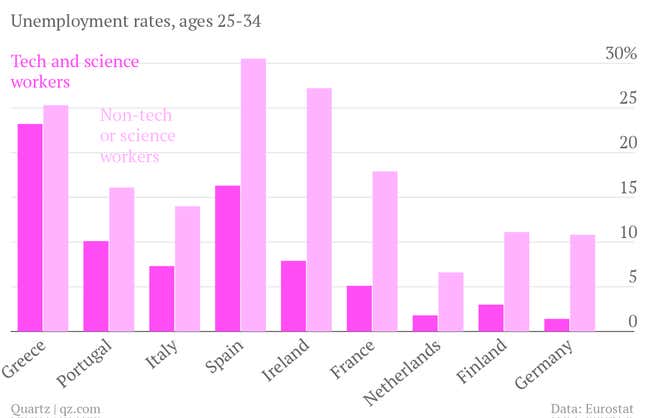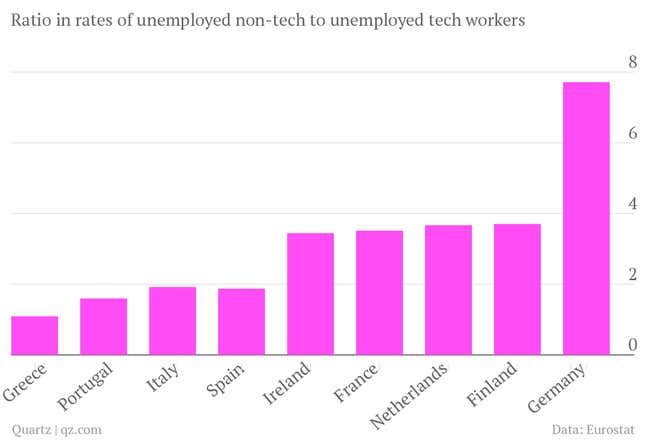
Despite the fact that economists regard high and rising unemployment as the biggest problem facing the euro zone, no one really knows why unemployment has spiked so high, so quickly in southern Europe, particularly among young workers.
Importantly, southern Europe appears to be lagging behind in one important place: science and technology. Eurostat provides data on job seekers aged 25-34 who have a university degree in science or technology or who have worked in either industry—so-called “HRST” workers. In northern Europe, these workers are in high demand. In France, for example, only 5.1% of these 25-34 year-old HRST workers are unemployed, but 17.9% of non-HRST workers in this age group are unemployed. In Germany, the difference is even more dramatic; 1.4% of HRST workers are unemployed, but 10.8% of non-HRST workers are unemployed. The discrepancies boil down to the fact that in northern Europe, it pays to have skills in science and technology.
That’s not the case in Greece, and hardly the case in Portugal. Tech and science workers are just as likely to be unemployed in Greece as non-tech and science workers, and only slightly less likely to be unemployed in Portugal. The situation is a little better in Spain and Italy, where the unemployment rate for HRST workers is about half the unemployment rate of non-HRST workers in the 25-34 age group.

These data could suggest that Greek and Portuguese science and tech workers don’t have the same kind of training as northern European workers in their field. It could also be that southern European countries don’t offer the same incentives to engineering or science firms looking to do business there.
Whatever the answer, economists see tech and science workers as driving forces of innovation and competitiveness globally. That unemployment in southern Europe is so indiscriminate could be yet another a warning sign that the region can’t compete with its northern neighbors.